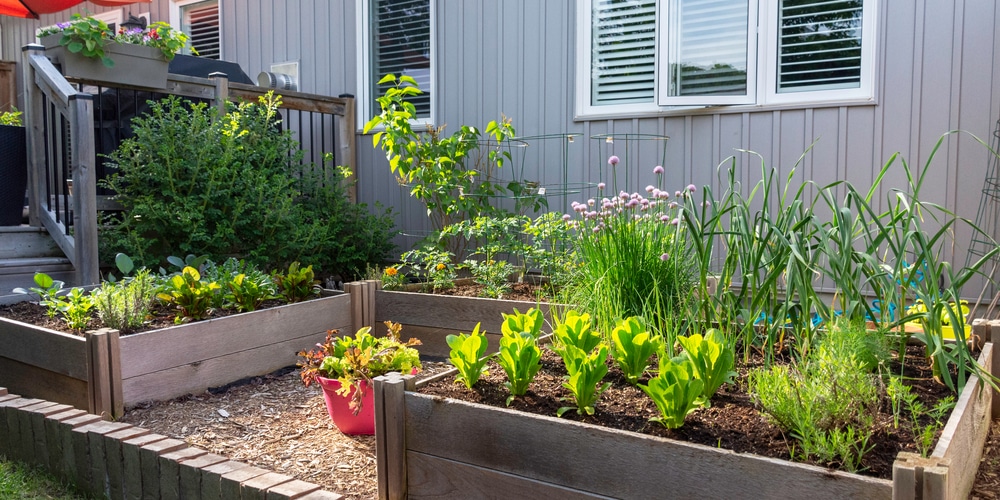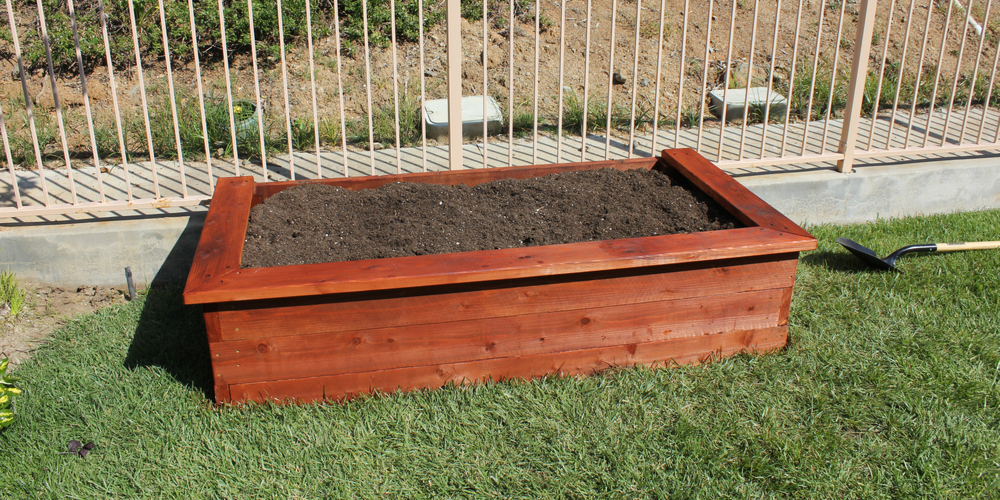Raised garden beds are great for many reasons. They provide comfortable ergonomics, protect the plants from pests, and can be created with optimal types of soil specific to the plants you want to grow, i.e., flowers, food, herbs, etc. Raised gardens can also be used to create interesting and dynamic landscapes.
There are several types of materials that can be used to create raised garden beds. Some of these materials include wood, logs, metal, concrete, natural stones, etc. However, this article is meant for people planning to create raised garden beds using wood. So read on to find out the best wood for raised garden beds.
Best Wood for Raised Garden Beds
Wood is a relatively cost-efficient material that can be used to create raised garden beds. Choosing the best wooden material makes your raised garden bed easy to install and more effective. While wooden materials don’t last forever, they could hold up your garden for 10 to 15 years before they need replacement.
There are four types of wood that you can use when installing raised garden beds. They include:
- Redwood
- Douglas Fir
- White Oak
Redwood
Redwood, aka Sequoioideae, is the best type of wood you could use for your raised garden bed. This type of wood is commonly found (in large quantities) in Northern California’s coastal forests. Redwoods are some of the tallest and largest trees in the world because they grow for several thousand years.
Redwood is known for its rich color and amazing properties. It’s often used for several types of construction with good reason. It’s easier to work with using machinery and hand tools, plus lots of other advantages.
Why would you use Redwood?
Durability
Redwoods are durable, which means that they can be used for up to 20 years before they need maintenance. The tree is capable of resisting daily wear and tear and exposure to elements. This is especially important since your garden will be exposed to bad weather conditions like rain, snow, or extreme periods of sunshine.
Elegance
Redwood has a rich red-brown or pink-brown color that makes your garden look elegant and inviting. They are perfect for people looking to decorate their homes and use raised gardens for aesthetic purposes. The problem is they are more expensive; however, this won’t be a problem if you are dedicated and want a beautiful raised garden bed that’s durable.
White oak
White Oak is commonly found in Central and Eastern North America. It has a long lifespan and has a reasonable price tag compared to other types of wood. White Oak does have its advantages. They include:
Hardiness and durability
White Oak is more durable compared to other types of wood. It’s more resilient to denting and scratching, especially when protected with a more effective polyurethane finish. Its durability makes it great for use in raised gardens.
Water resistance
White oak is water-resistant since its pores are plugged with tyloses. These features make this type of wood resistant to decay, which makes them prime candidates for use in projects that involve lots of moisture, i.e., raised gardens.
Douglas Fir
Douglas Fir, aka Columbian pine or Oregon pine, is a softwood, coniferous species that are native to Eastern Asia and North America. The tree has lots of uses, including building aircraft, boats, and construction. They are also grown for ornamental purposes, i.e., they are used as Christmas trees. The tree has lots of disadvantages that make it perfect for individuals looking to build raised garden beds.
They include:
Chemical-free
Douglas Fir is chemical-free, which makes them perfect for installing raised garden beds. You do not need any gloves when installing them; plus, you won’t have to take any special precautions when planting foods and herbs.
They are strong and stiff
Douglas Firs are strong and stiff, making them perfect for people looking to create raised garden beds. You can trust this tree to keep your garden raised for extended periods (about ten years) before you’ll need to do some maintenance.
Resistant to decay
Douglas Firs are resistant to decay because of their resistance to moisture, which means that you can use them wherever you want. This type of wood can dry in two weeks (even when they are exposed to moisture). However, you’ll need to apply some polish to protect the wood and make it last much longer.
Best Wood for Raised Garden Beds: Conclusion
You can see that the type of wood to use when building your raised garden bed depends on various facts including your budget, geographical location, etc. The best decision you could make is to choose the best type of material that will last you a very long time. Invest in your garden to get long-lasting results.

